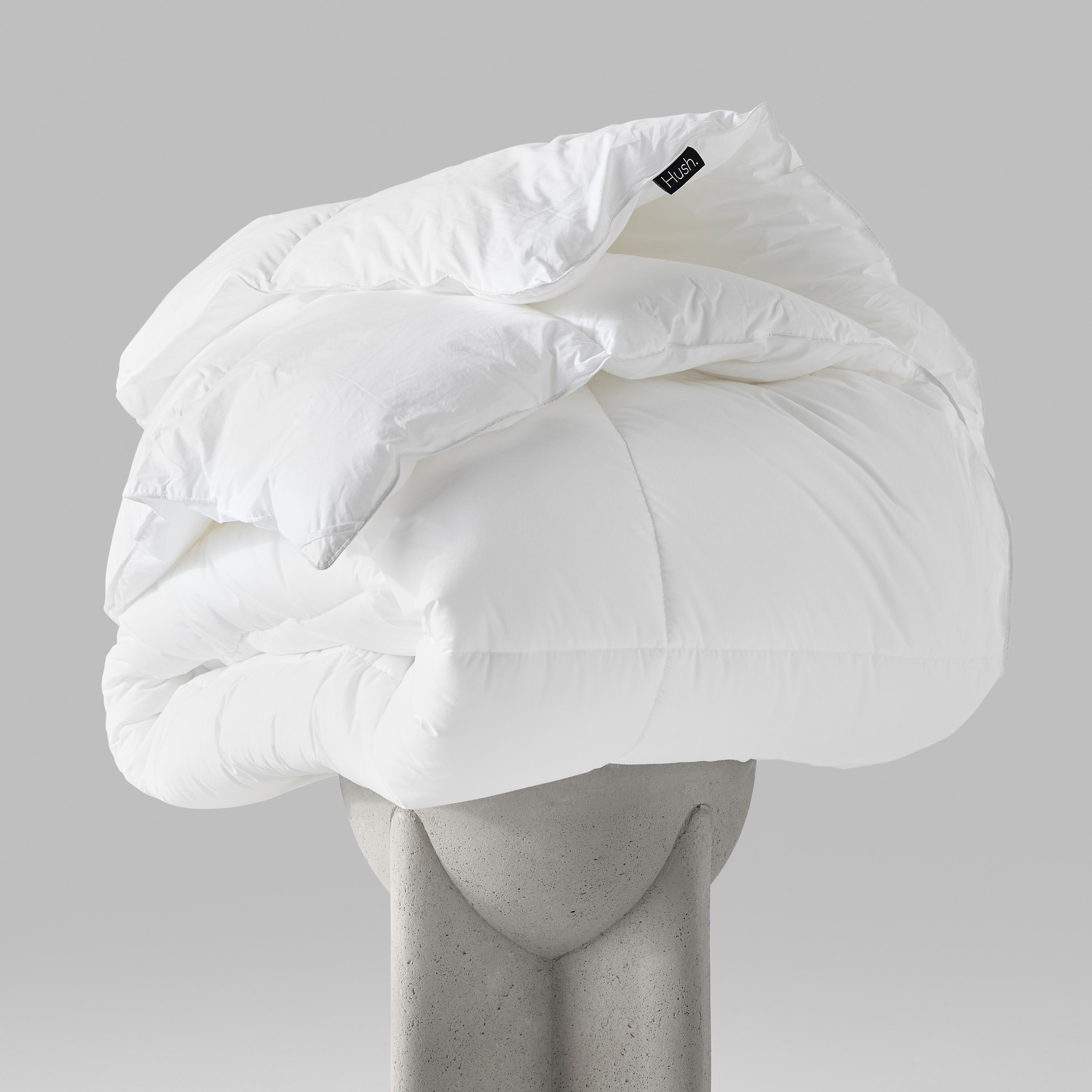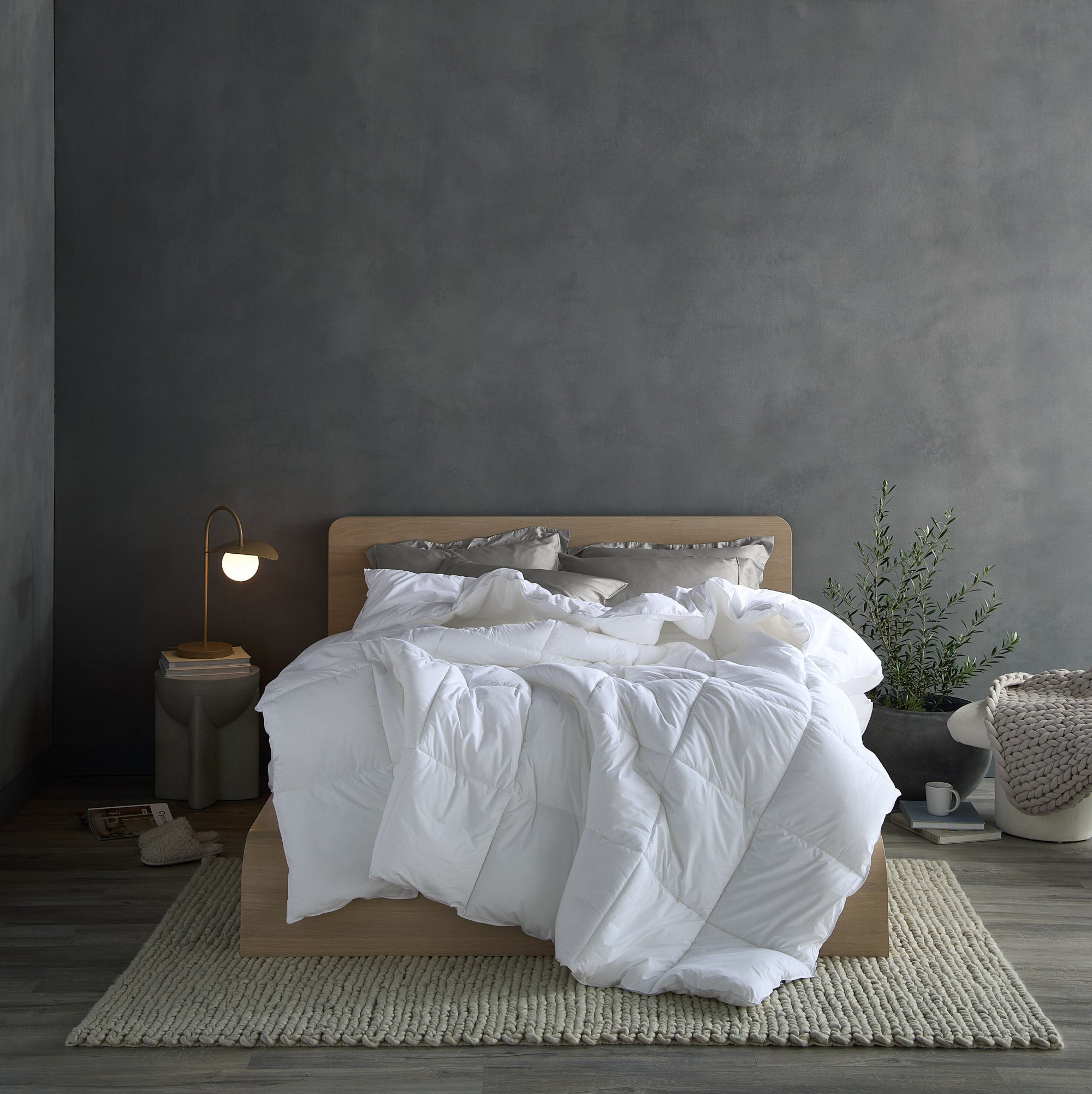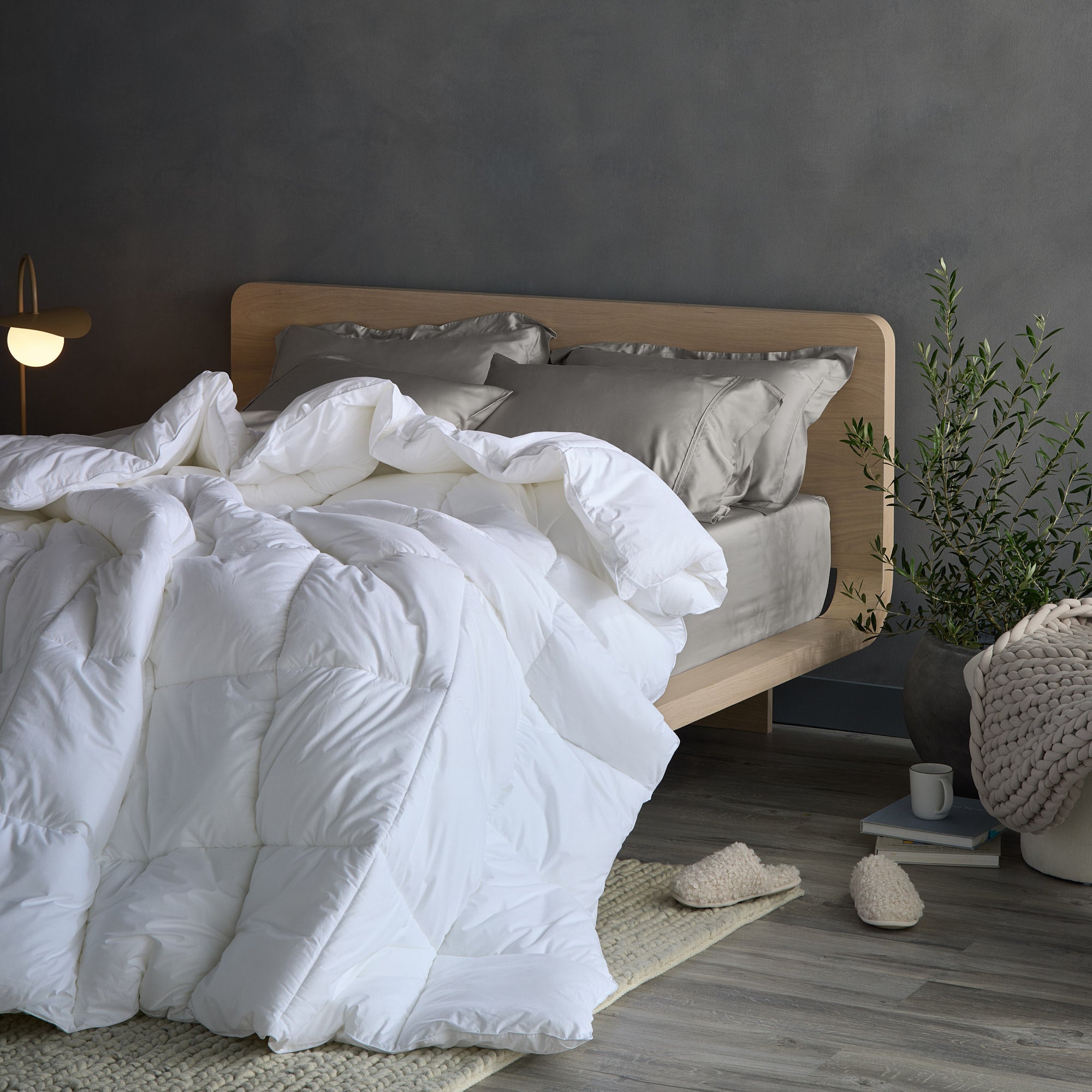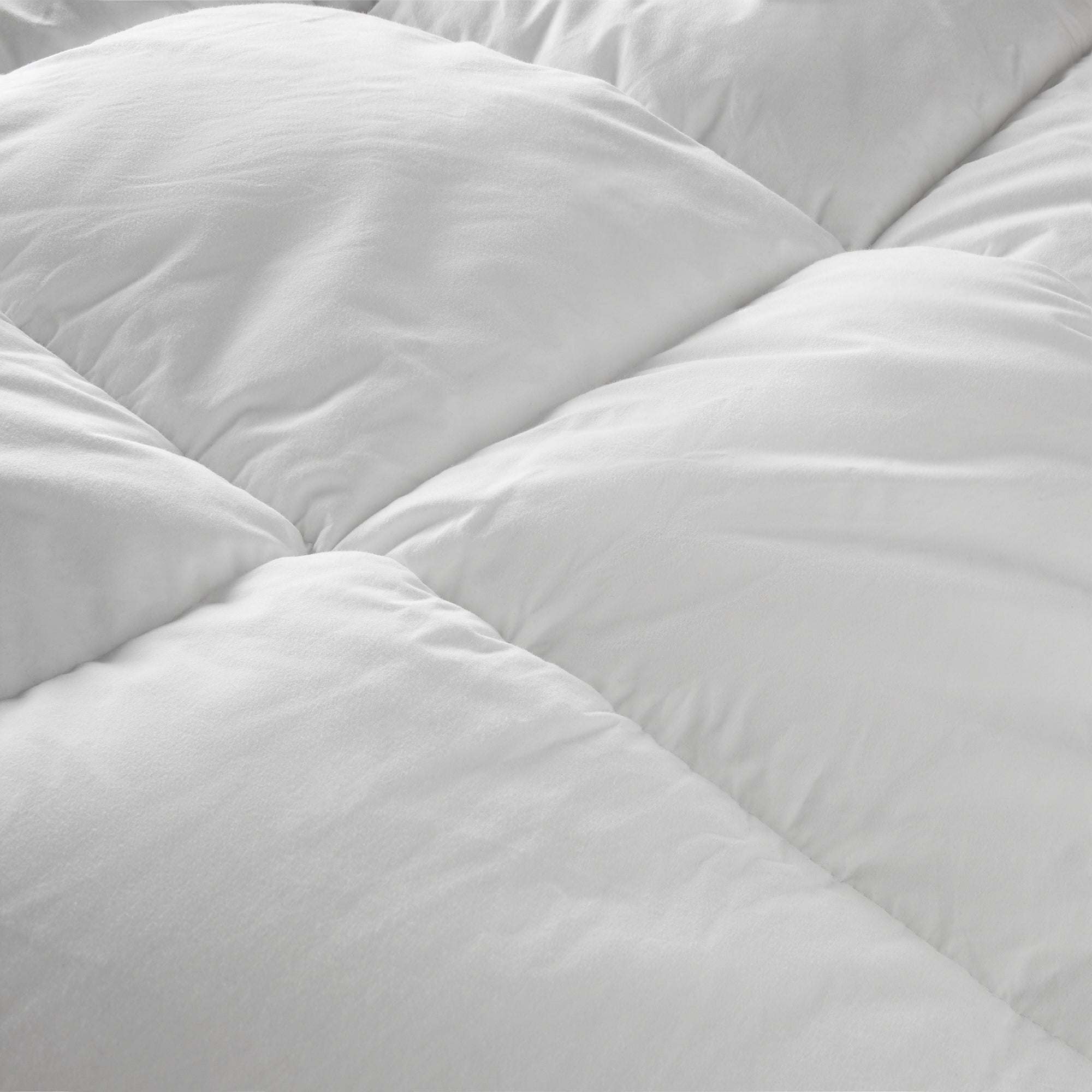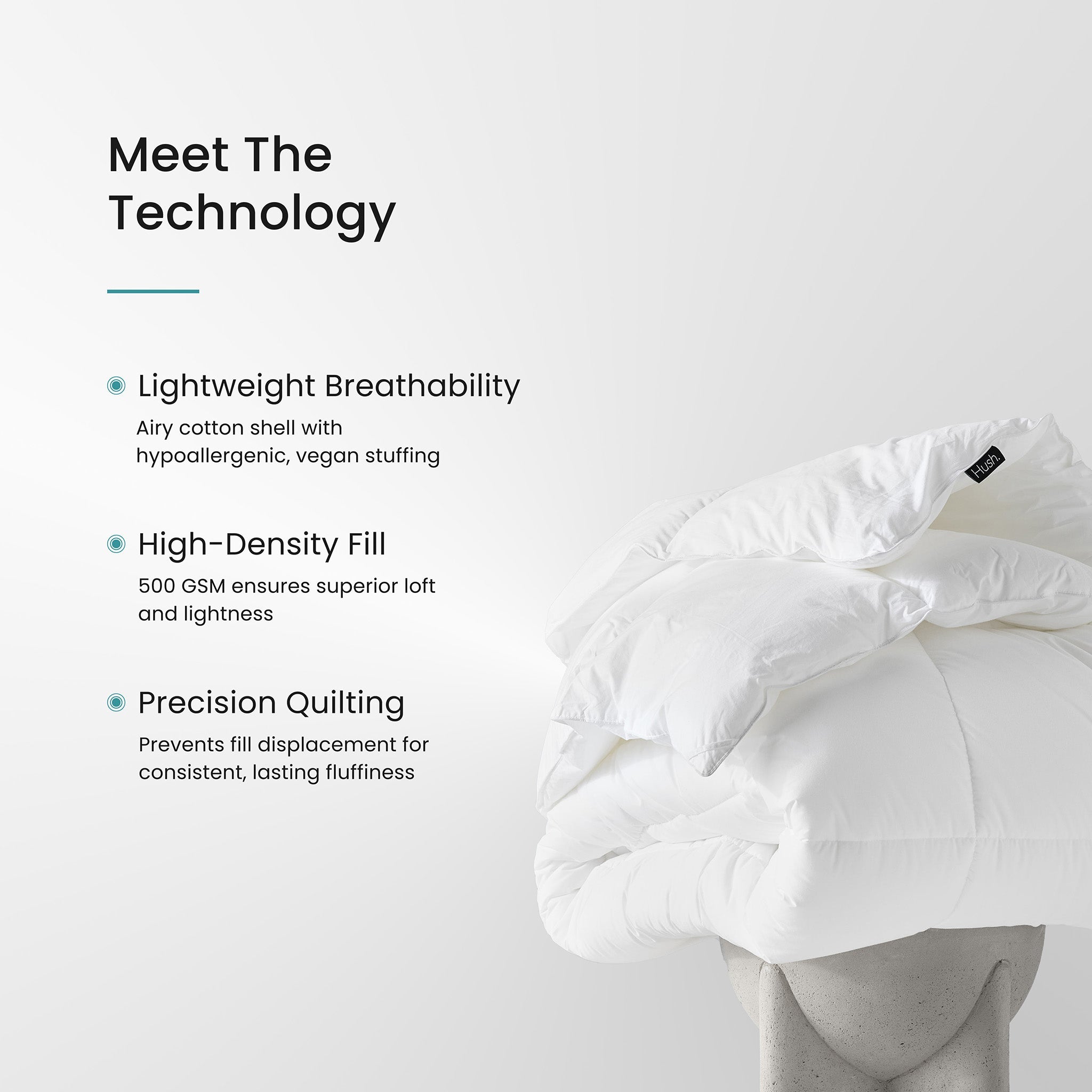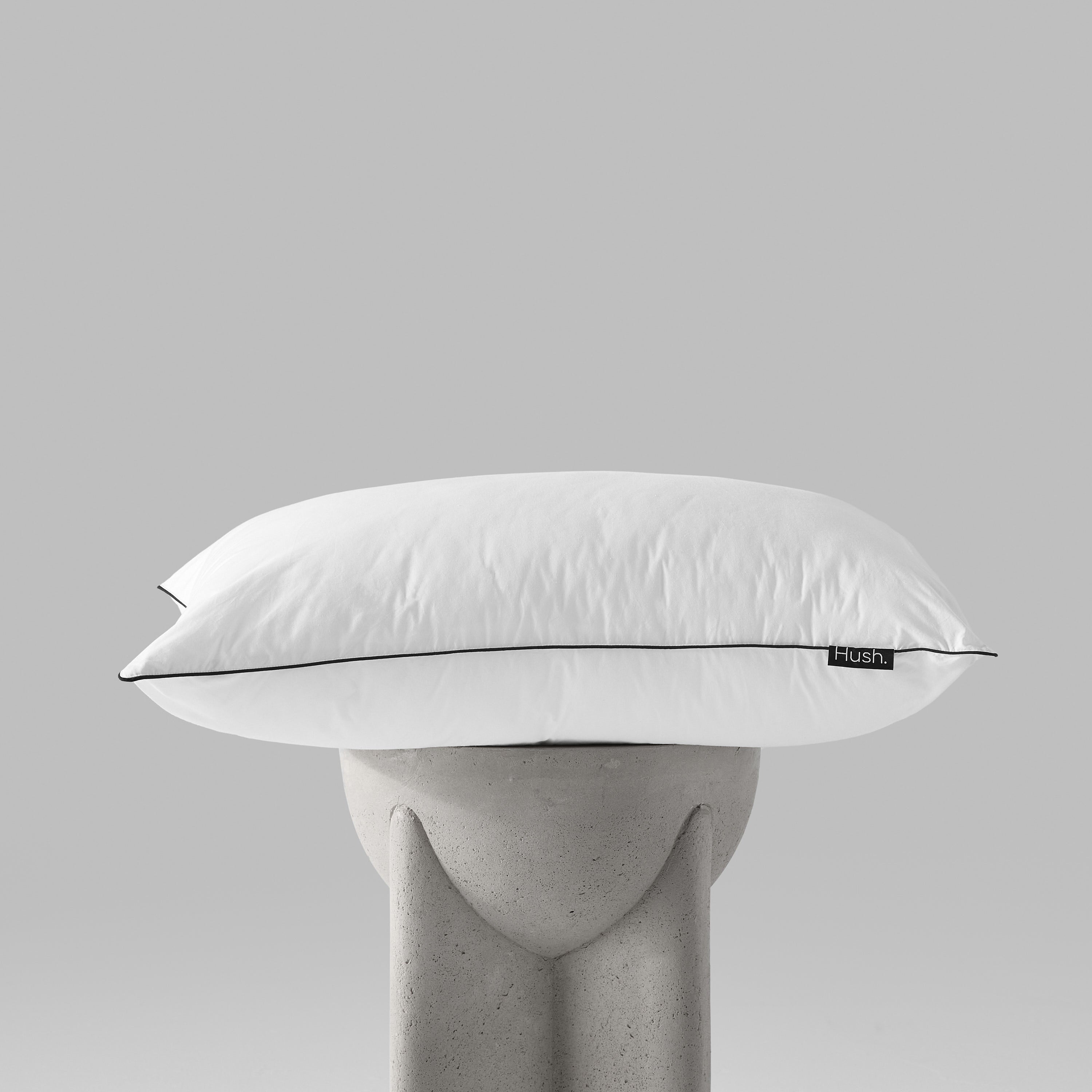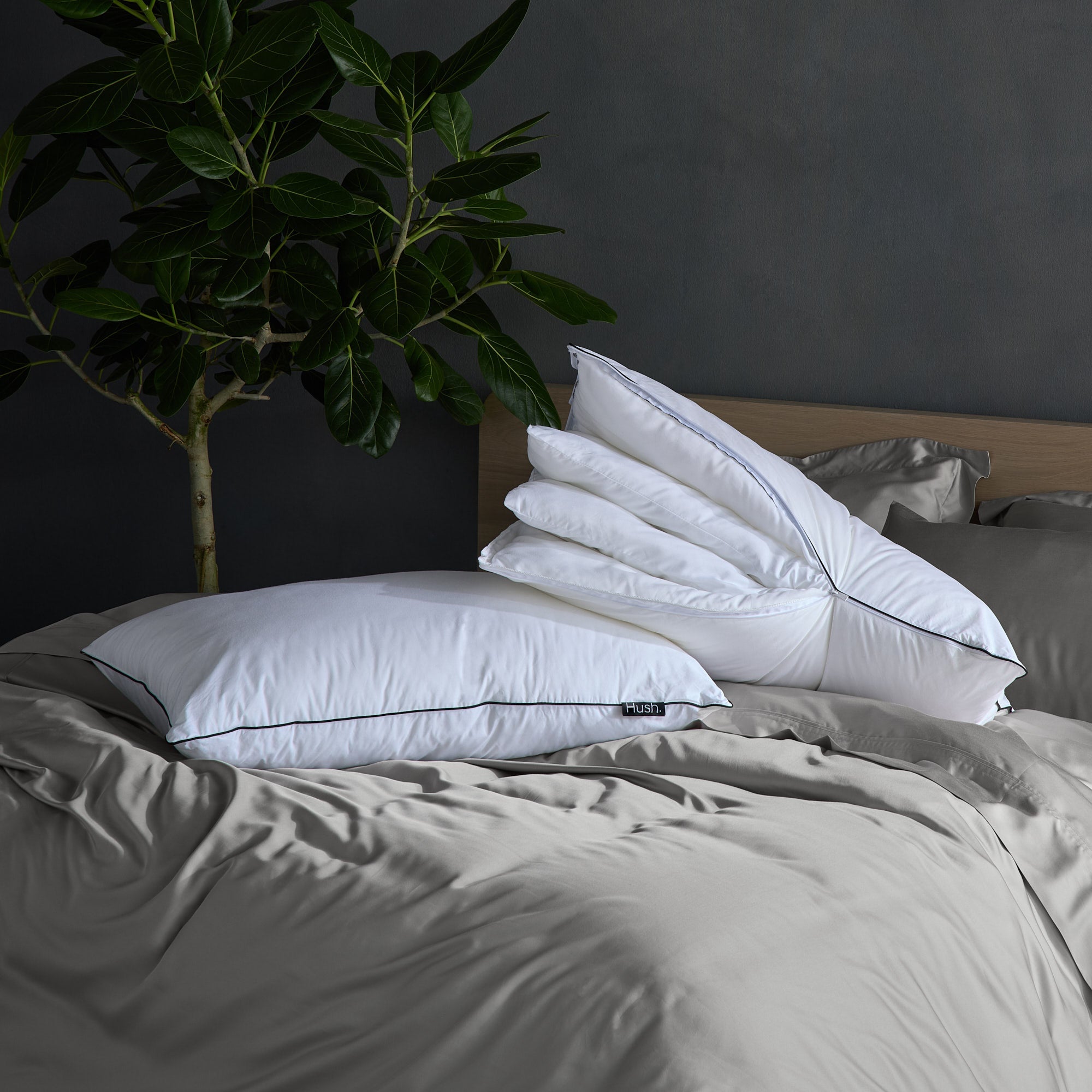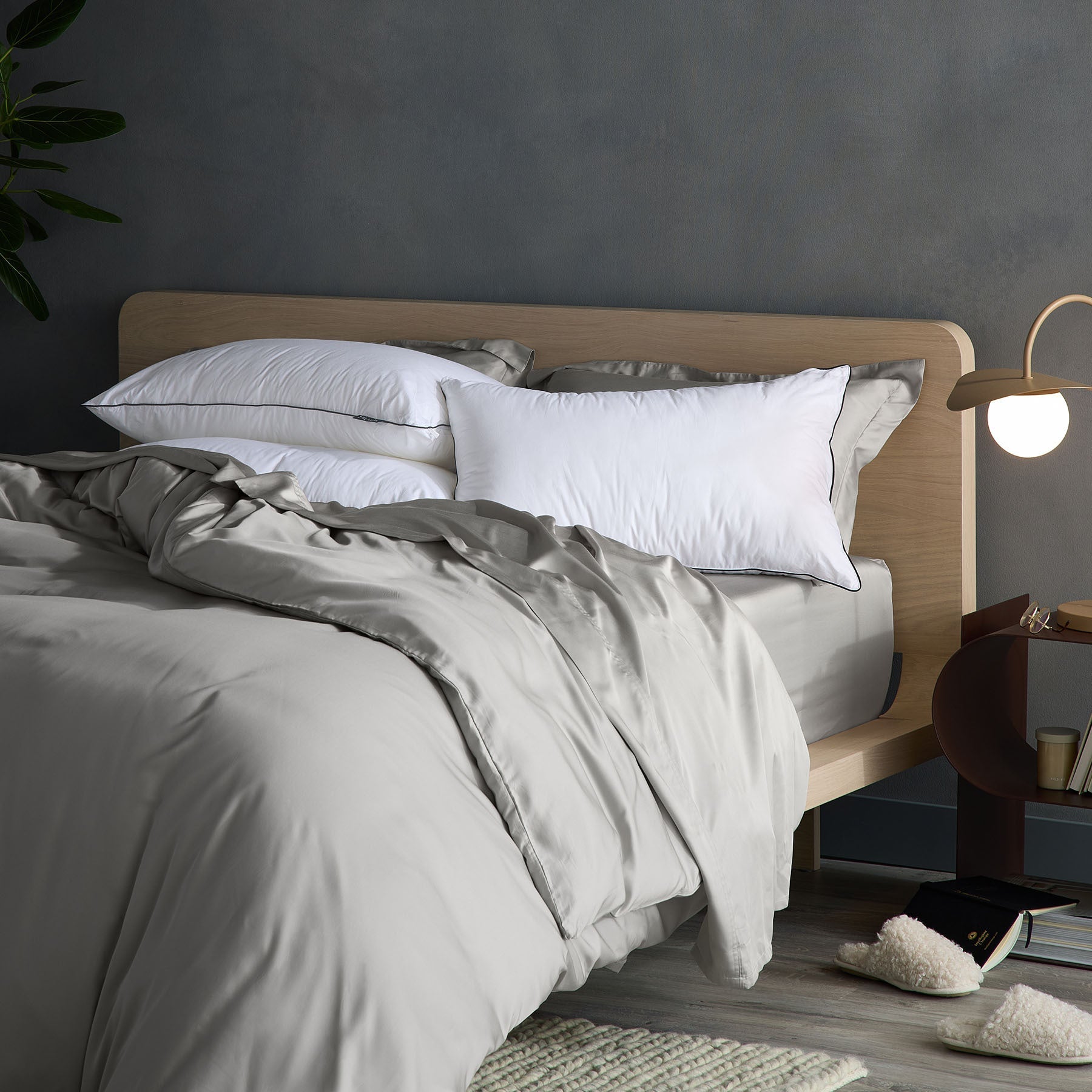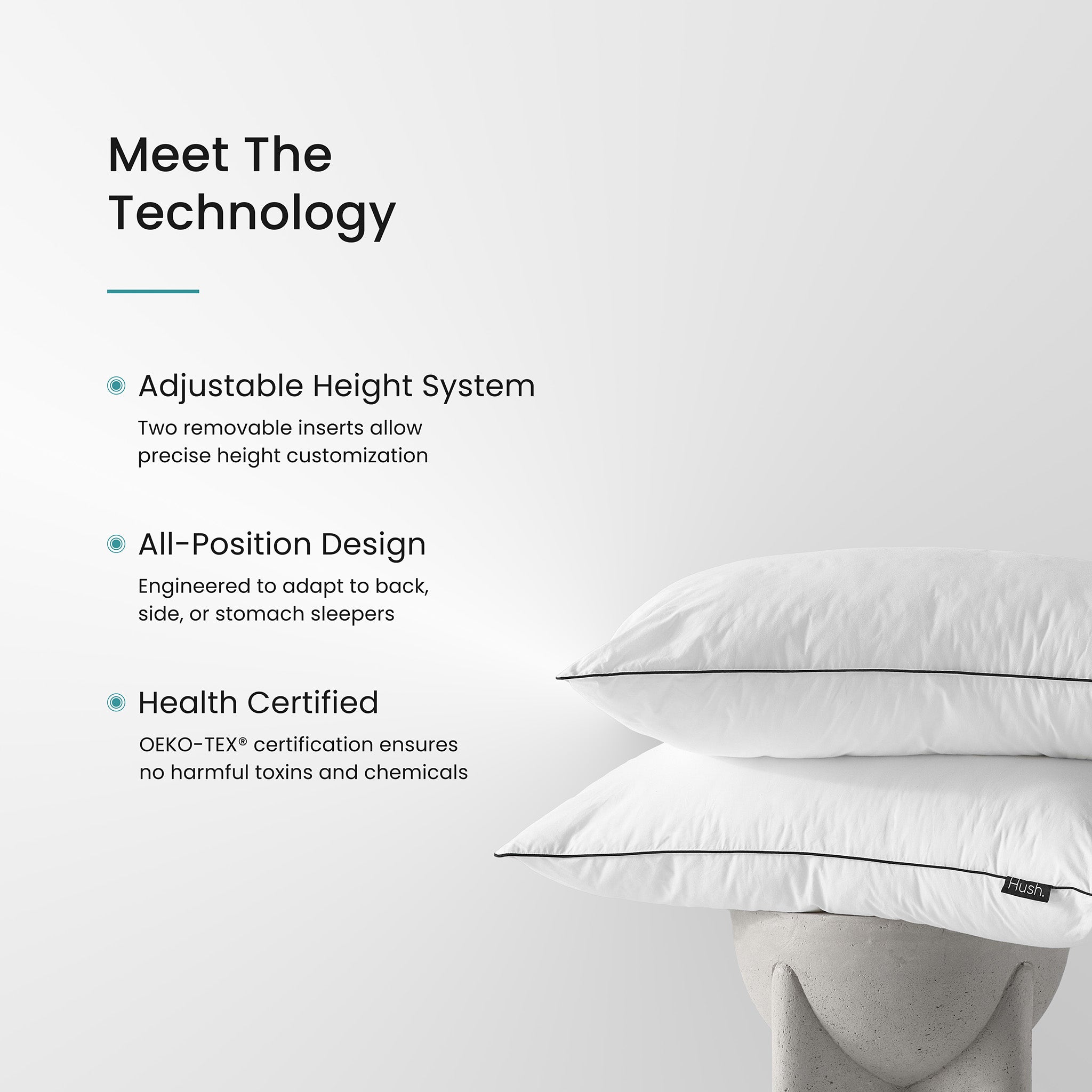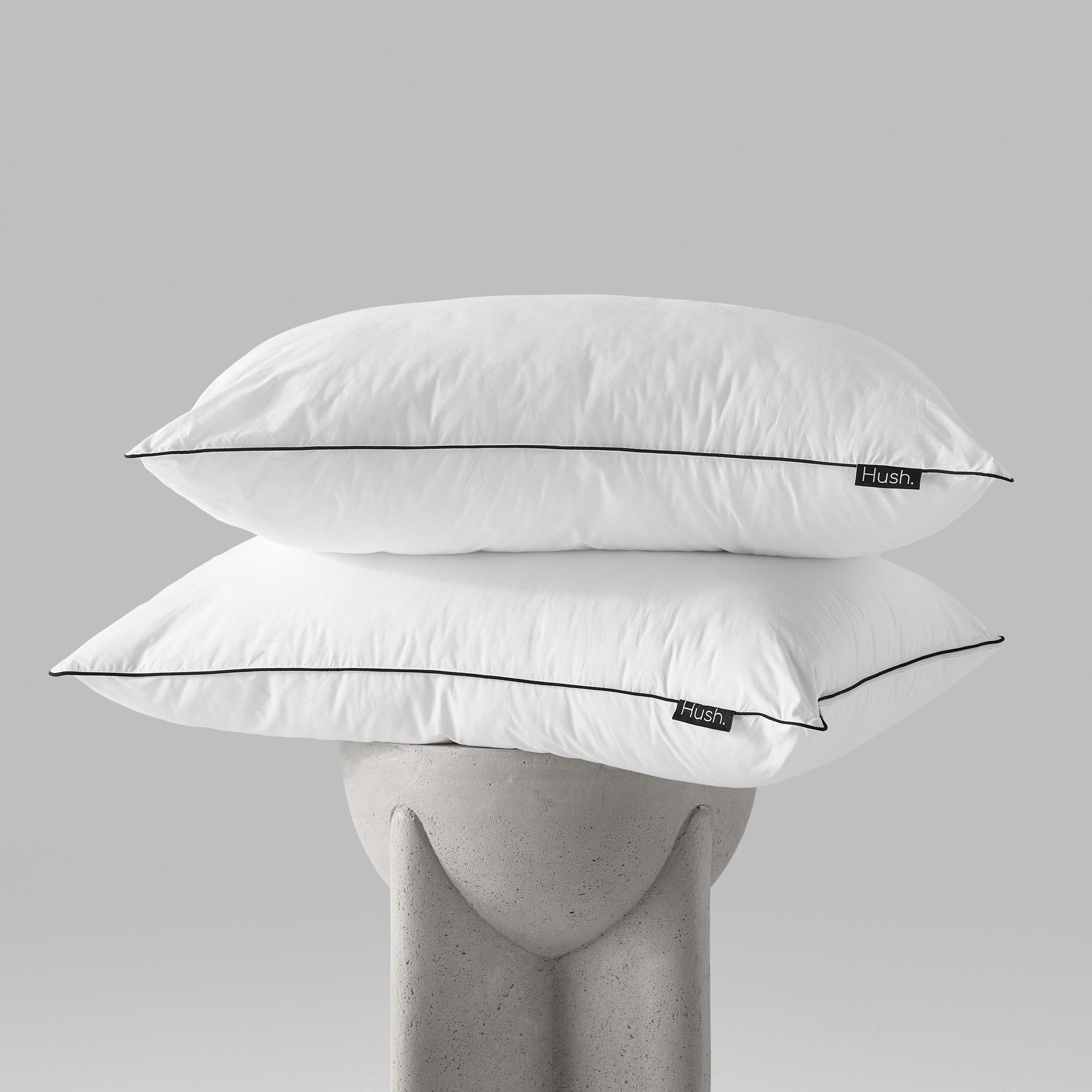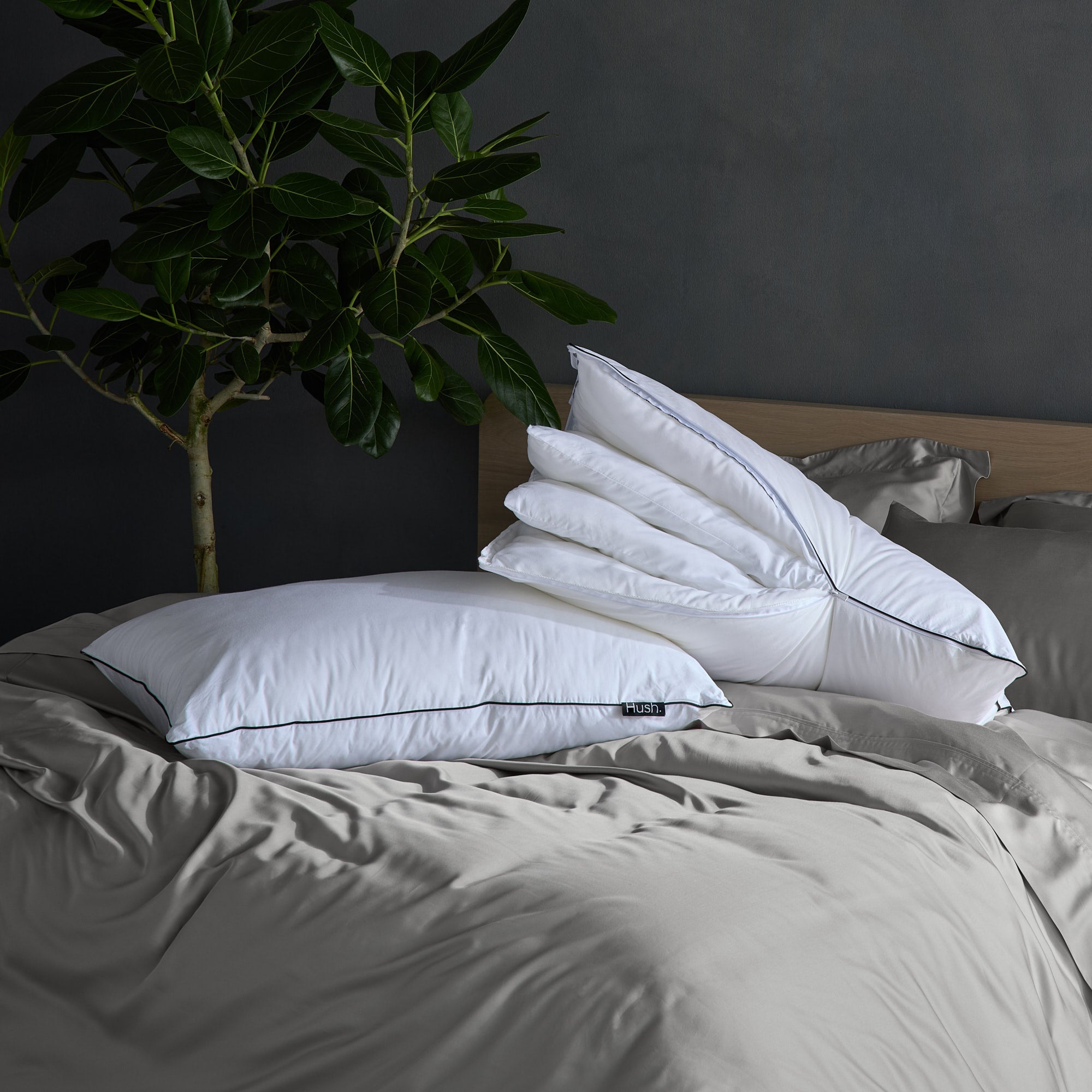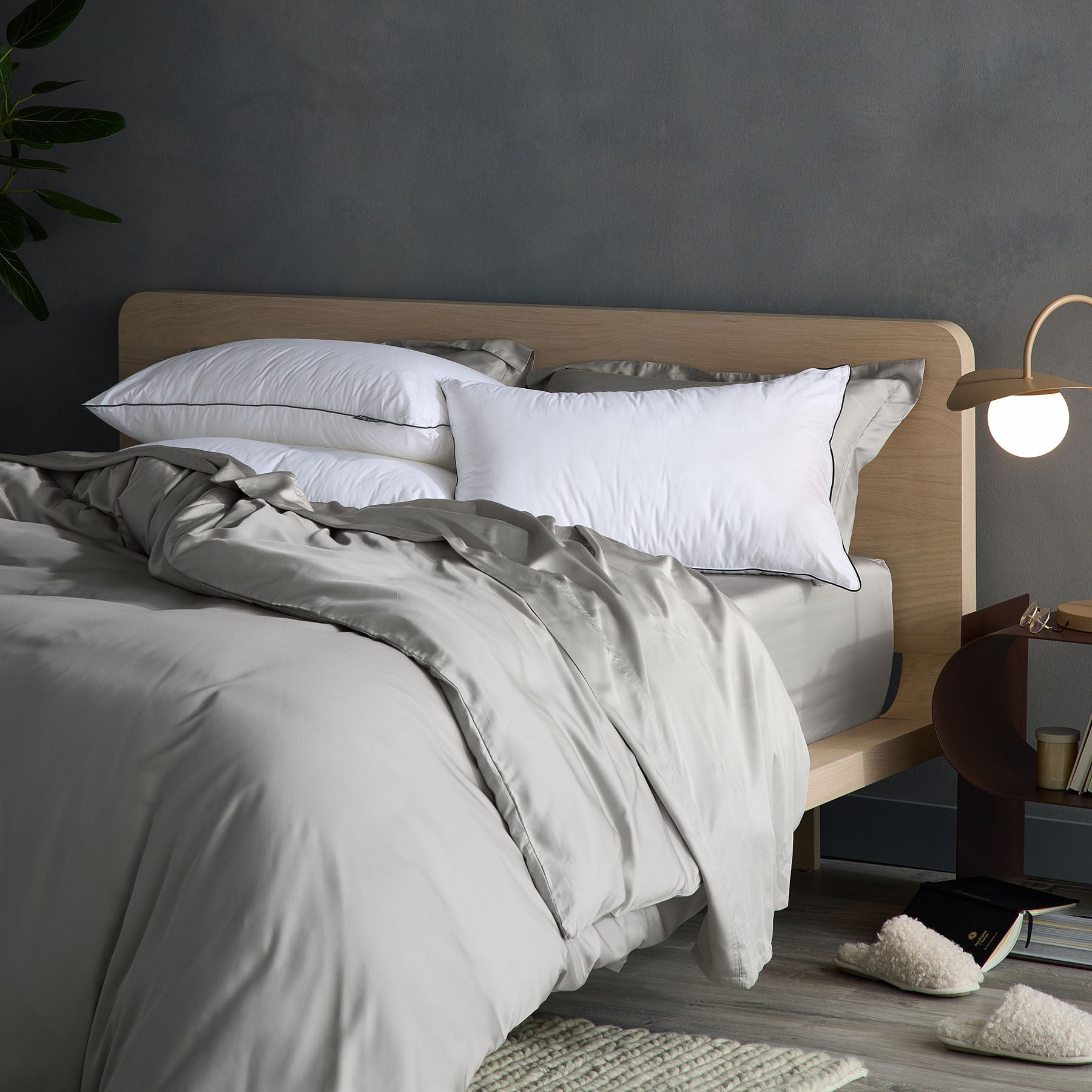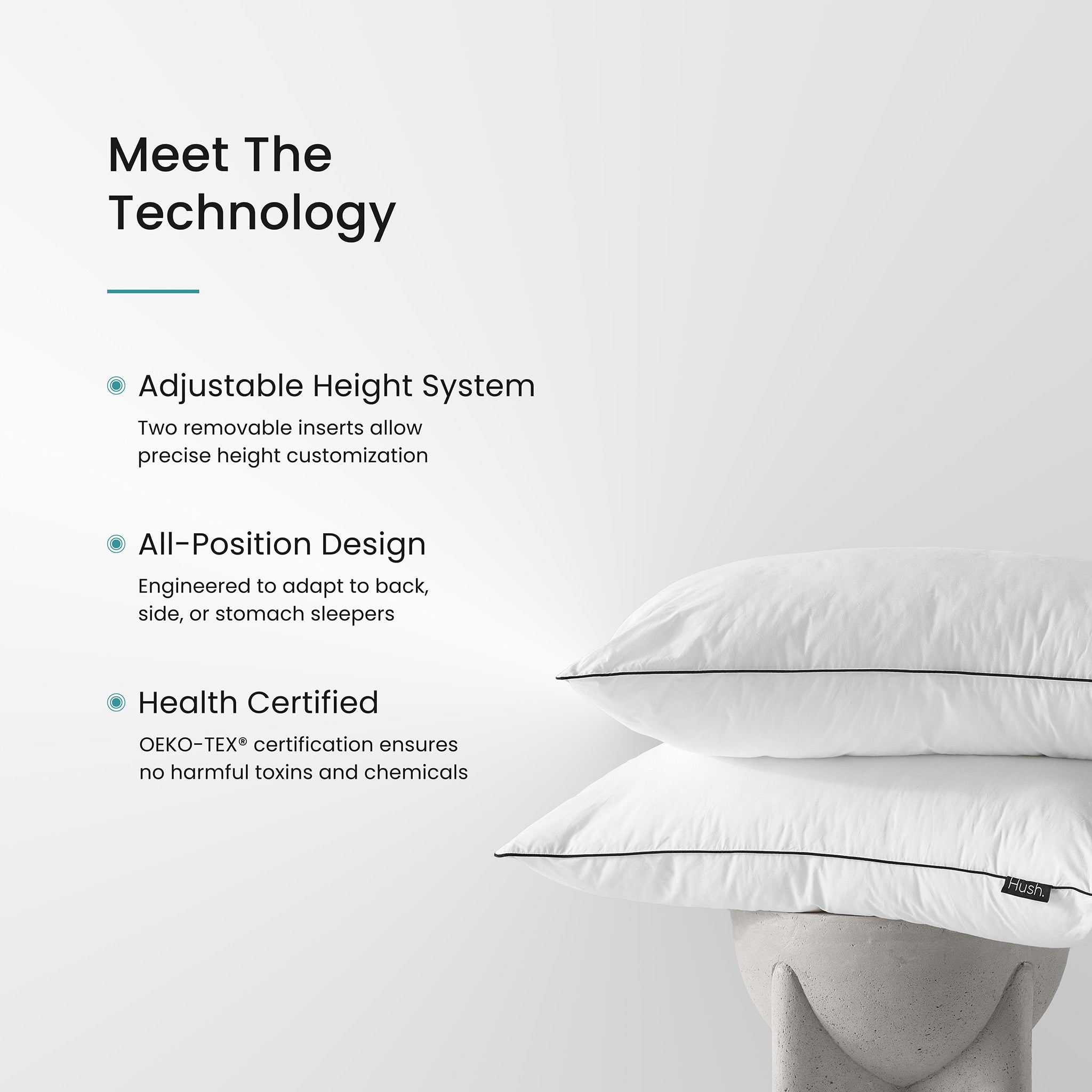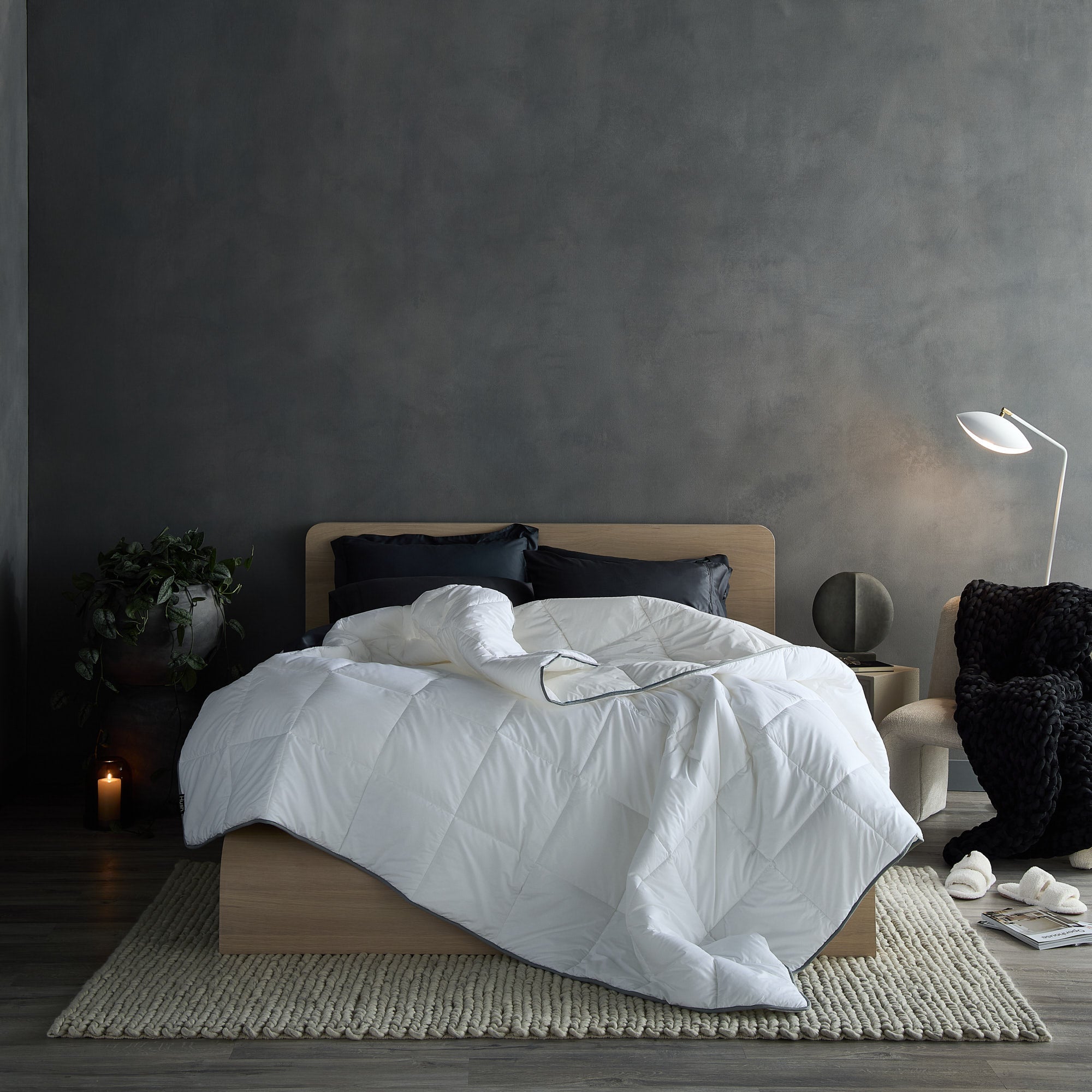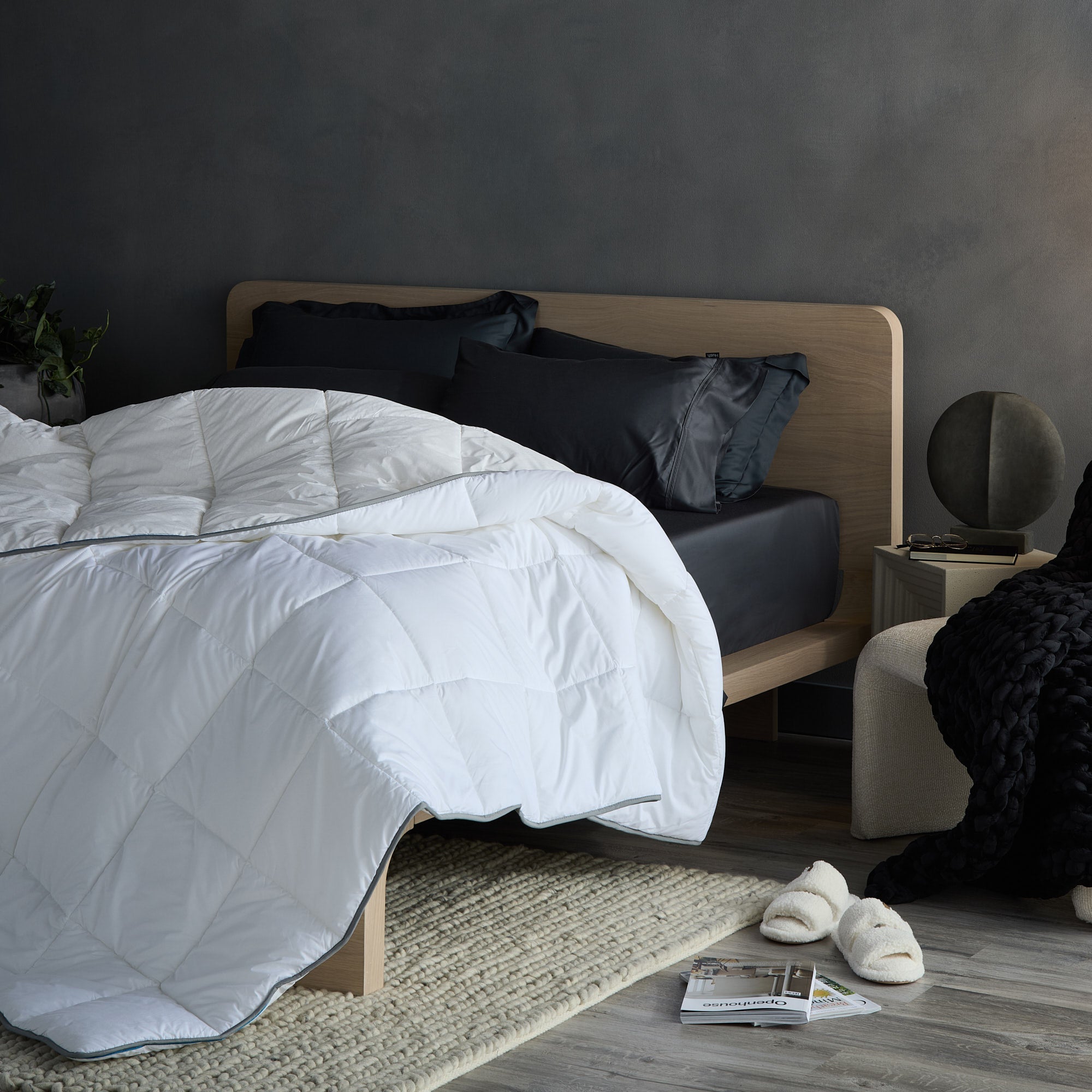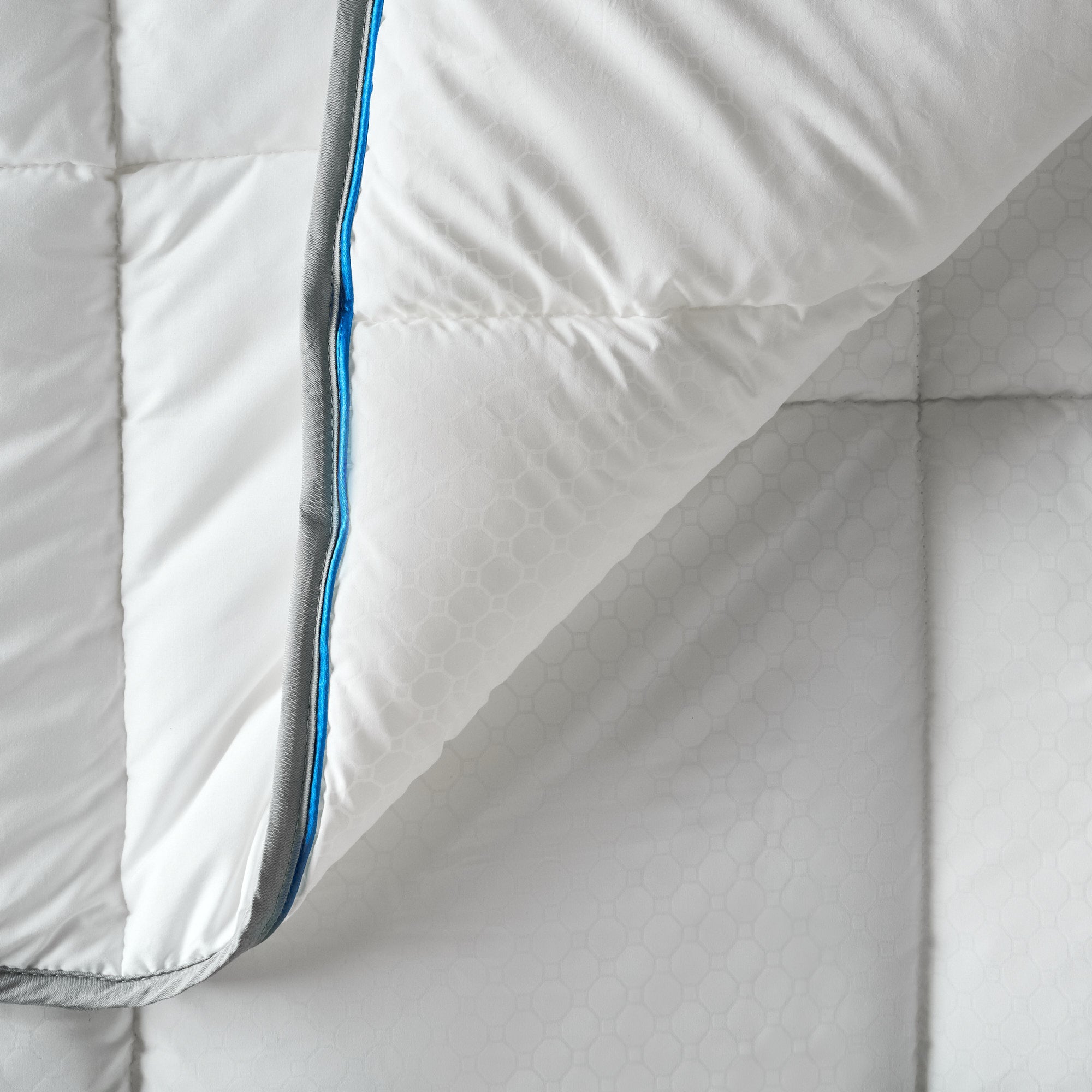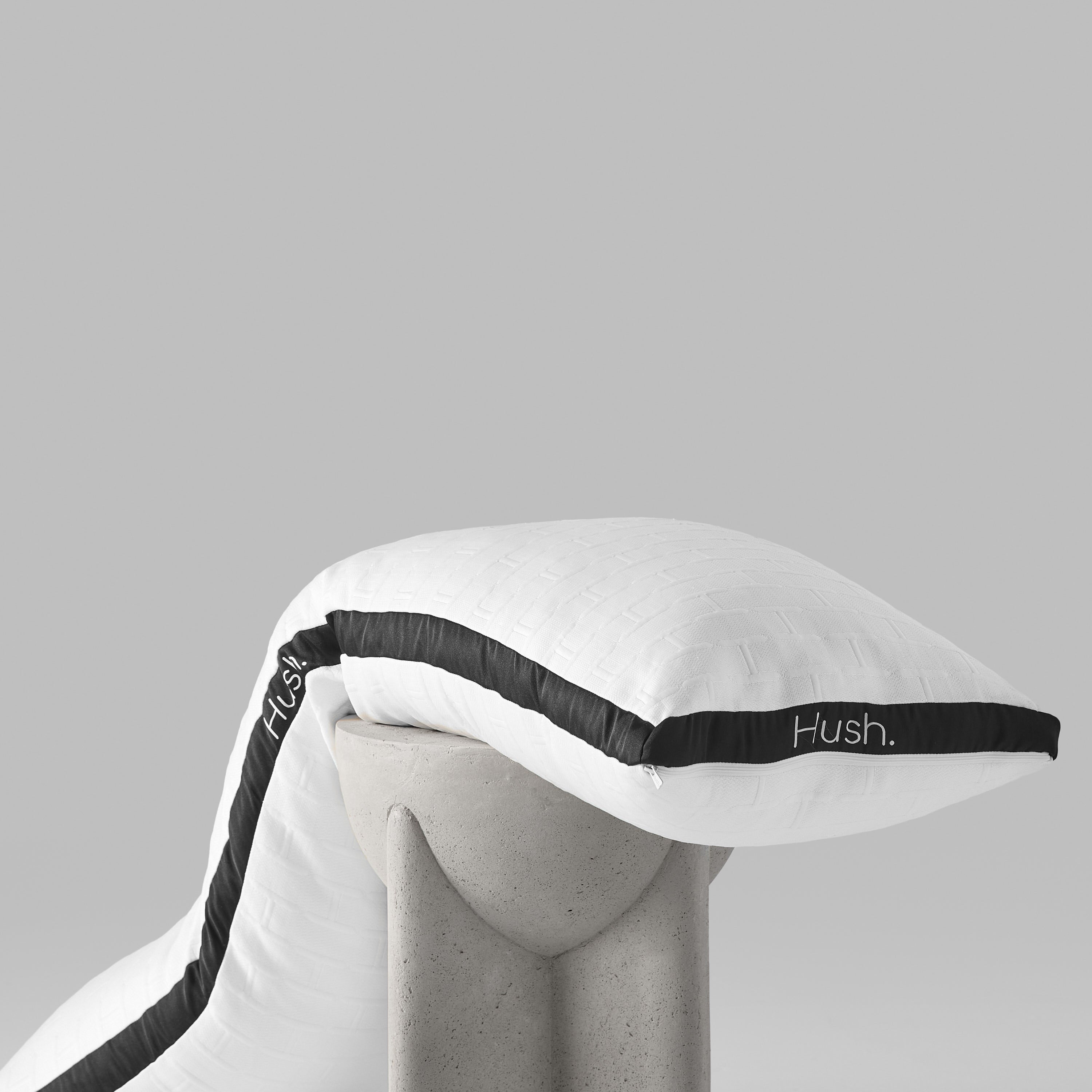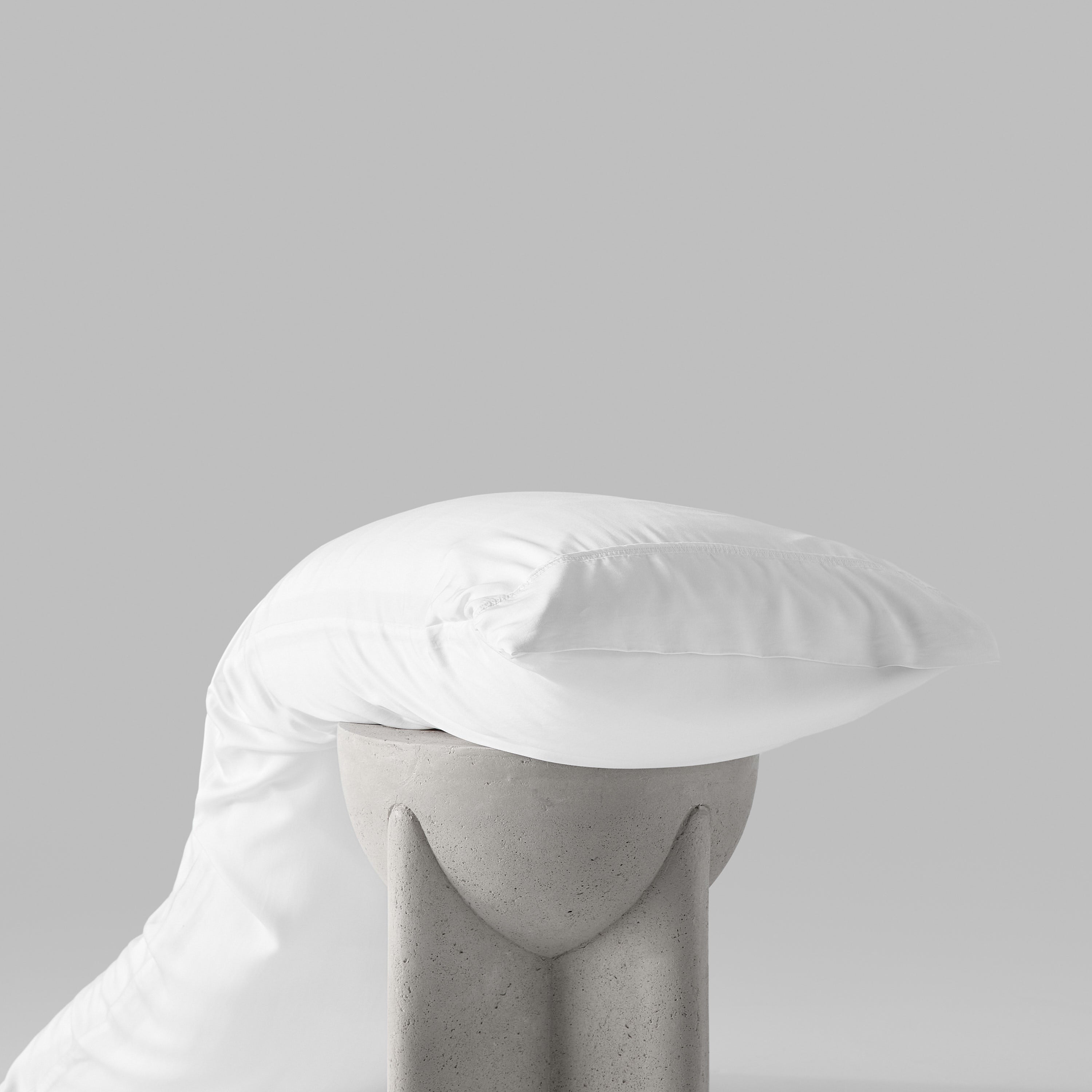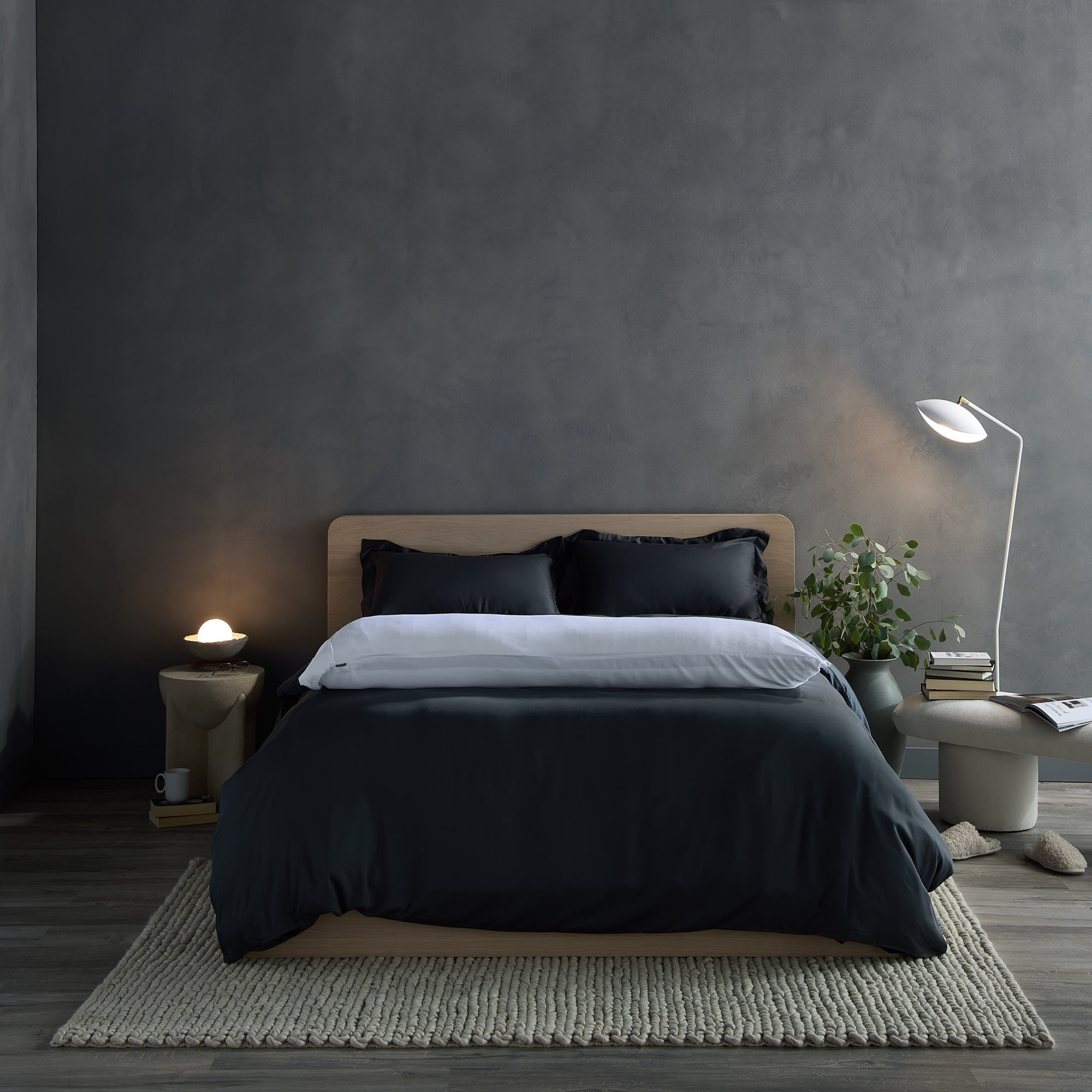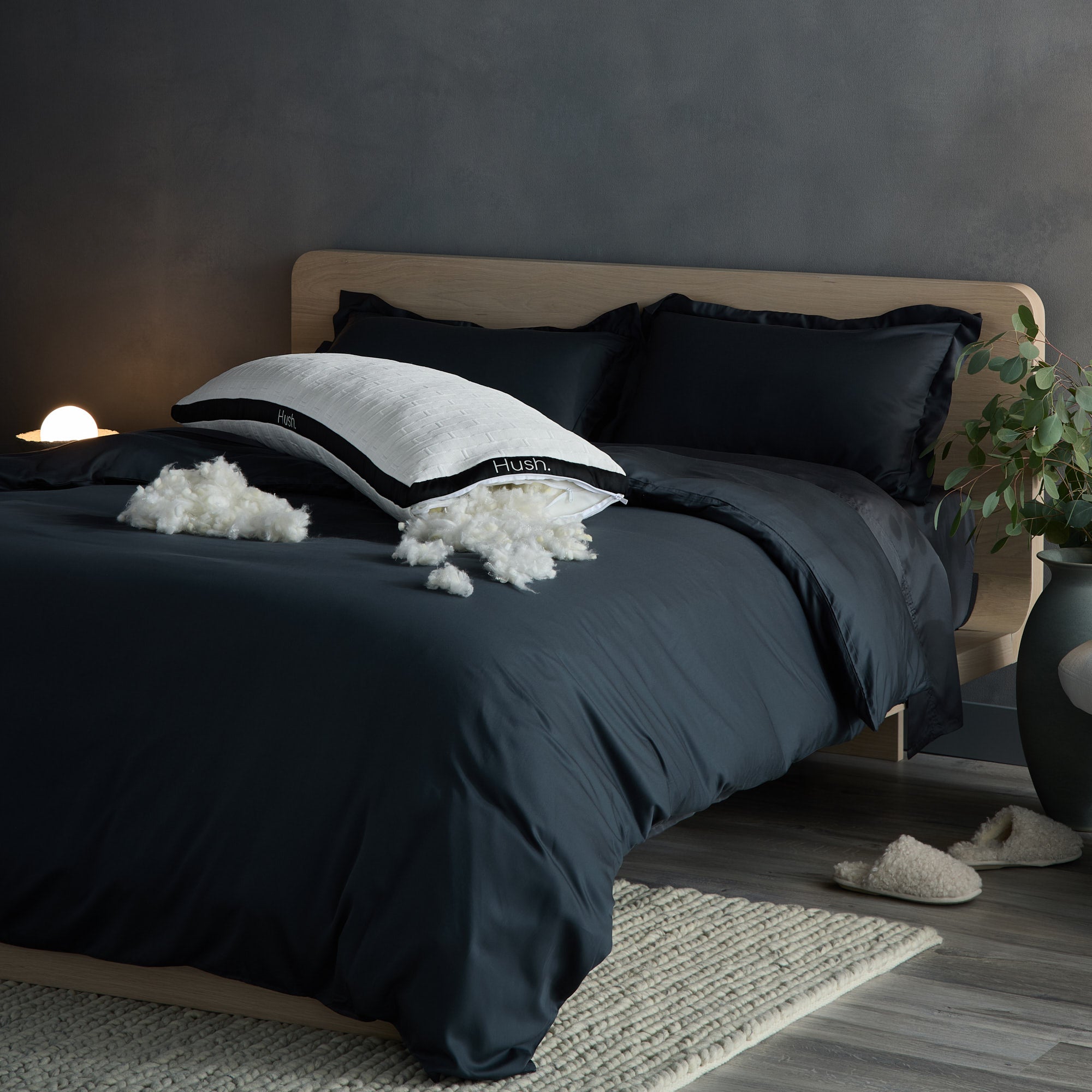
Anxiety is so much more than simply feeling worried. It's a significant mental health challenge that can interfere with your day-to-day activities. Anxiety can have many effects — it can isolate you from social situations, lower your confidence, and make it difficult to quiet your mind. For many, nighttime anxiety (feelings of extreme stress and anxiety before bedtime) can also make going to sleep a challenge.
Insomnia and anxiety are often closely related, causing sleep problems as they disrupt your bedtime routine and circadian rhythm. This leaves you tired and worn out when you get up the next day, making you more prone to feeling stressed, irritable, and anxious.
While anxiety disorders can keep you from getting a good night's sleep, this doesn't mean you're doomed to never sleep well again. In this article, we'll take a closer look at different types of anxiety, how they contribute to insomnia, and ways you can get enough sleep.
What Causes Nighttime Anxiety?

There isn't just one cause of nighttime anxiety. A variety of lifestyle and genetic factors, as well as life events, can combine to make someone anxious in a way that interferes with their quality of life and sleep quality.
However, any anxiety disorder can carry into the night. Such nighttime anxiety goes deeper than worrying about the next day at work.
According to the ADAA, a generalized anxiety disorder involves feeling anxiety almost every day for a period of six months or more. Those dealing with anxiety will often experience irritability, trouble concentrating, muscle tension — and of course, trouble sleeping.
Other common anxiety disorders that cause nighttime anxiety include obsessive-compulsive disorder, or OCD. This causes recurring and uncontrollable thoughts or urges (like a need to frequently wash one’s hands). Panic disorders can cause panic attacks — moments of intense fear caused by certain places or situations.
PTSD is a well-known condition in which a traumatic event causes anxiety, depression, and even recurring nightmares that disrupt sleep or make you scared to go to sleep. Finally, social anxiety disorders can make people experience symptoms of anxiety when they think about interacting with others.
Anxiety disorders are complex but share many common symptoms, including chronic negative thoughts and fear. When you feel anxious, the stress gives your body a rush of adrenaline to help you combat a perceived danger. Without proper medical care, side effects include elevated heart rate, depression, headaches, upset stomach, loss of libido, and more.
Any of these disorders can contribute to nighttime anxiety. This can make anxiety even harder because you’re no longer just dealing with symptoms during the day — they also keep you from drifting off to dreamland.
Nighttime Anxiety and Insomnia

Chronic insomnia is perhaps one of the most serious side effects of anxiety. In fact, more than 50% of adults with anxiety have trouble sleeping.
Insomnia is a sleep disorder that keeps you from quickly drifting off to sleep — sometimes for hours. For many, that "empty" time when lying in bed creates the perfect conditions to set their minds racing. You may be worried about a big presentation at work or facing your hectic commute the next day. Or you might be dwelling on a conversation that didn't go as you expected. This rumination makes it extremely hard to fall asleep.
Insomnia and anxiety can create a vicious cycle. Sleeping problems leave you more prone to stress and anxiety. When you are more anxious, you have a harder time falling asleep and are more likely to experience sleep disruptions during the night. Unhealthy sleep patterns and nighttime anxiety start regularly keeping you from getting those needed visits from Mr. Sandman.
In some cases, you may even experience anxiety about falling asleep. When you become worried about your ability to fall asleep, your bedtime routine can become a source of nighttime anxiety and even nocturnal panic attacks.
Left unchecked, the sleep deprivation from your insomnia and anxiety can cause serious health problems. In addition to worsening stress and anxiety, poor sleep can increase your risk of heart attack, stroke, diabetes, obesity, and more. Learning to recognize and reduce nighttime anxiety can improve your sleep quality — an essential part of your overall wellness.
How to Lower Nighttime Anxiety and Get Restful Sleep

While nighttime anxiety can make you dread turning out the bedside lamp, your bedtime routine doesn't have to become a source of stress. Practicing some key relaxation techniques and getting help from a mental health professional can go a long way in helping you sleep better. In some cases, a sleep specialist can help determine if other underlying conditions (like sleep apnea) are contributing to your poor sleep.
There may not be a permanent cure for anxiety disorders, but you can find relief. By changing your approach to your bedtime, you can also get a better night's sleep and wake up feeling refreshed. Here are a few tactics you can try:
Cognitive Behavioral Therapy (CBT)
Cognitive behavioral therapy (CBT) is a type of talk therapy that is designed to reduce negative thinking. By evaluating how your thoughts, attitudes, and beliefs affect your thinking and actions, your therapist can help you put anxiety triggers in perspective. This can help your stressors become more manageable as you develop healthy thought habits.
While CBT isn't necessarily focused on improving sleep, studies have found that those who do well with this type of therapy often improve sleep quality and help you fall asleep faster. Sometimes, depending on your condition, a mental health professional may also prescribe antidepressants or other medication.
Meditation and Breathing Exercises
For some people, even a single meditation session can start relieving anxiety symptoms so you can feel ready for sleep. By focusing your attention on your body and clearing your mind of the day’s worries, you can relax and reset. Apps like Headspace and Calm offer sleep-specific meditation guides to make this easier than ever.
Similarly, deep breathing exercises can reduce blood pressure and heart rate, which can help the body calm down — even during a panic attack. Another popular relaxation practice is to tense and then relax each muscle group in the body. This can help release muscle tension that you weren't even aware of.
Weighted Blankets
Weighted blankets use deep touch pressure therapy to provide light pressure across the entire body. This soothing sensation helps you feel like you are wrapped in a safe cocoon. Deep touch pressure therapy has been found to relieve anxiety by helping the body release serotonin and dopamine. By helping you feel calm, a weighted blanket will make it easier to fall asleep and stay asleep.
Soothing Bedtime Activities
A relaxing bedtime routine can go a long way in helping you destress before bed. For example, many people with anxiety disorders stay awake because they are thinking about future "to-do" lists. To avoid this, try writing down your to-do list before bedtime as you remind yourself that you can set your own pace for completing those tasks. Similar to journaling, this can help to empty your mind and organize your thoughts before you get in bed.
Some people prefer taking a warm bath or eating a light snack — find what works best for you. Keep in mind, however, that exercising too close to bedtime or drinking beverages with caffeine or alcohol can make it harder to get some zzz's.
Look at Your Sleep Environment
Your bedroom sleep habits can have a direct impact on whether you feel stressed and anxious at night. For example, blue light from smartphones and tablets can decrease melatonin production. For some, any source of light can create a sleep disturbance that makes it harder to sleep. Blackout curtains or a sleep mask can help block unwanted light.
Browsing through social media on your phone will make your mind more alert and active, making you prone to anxiety. Instead of using your phone, pick up a book instead. In addition, a white noise machine can make it easier to calm down your mind. Of course, pairing your weighted blanket with a comfortable mattress and pillows will also make it easier to fall asleep.
Find Relaxing Sleep With Weighted Blankets

You don't have to suffer from poor sleep night after night. By following sound medical advice and practicing mindfulness before bed, you can fall asleep faster and stay asleep longer. In turn, when you feel better rested in the morning, it will be easier to keep feelings of anxiety in check during the day.
Hush Blankets are a great way to help reduce nighttime anxiety. By using deep touch pressure therapy, our blankets provide a soothing, calming effect when you get in bed. You will feel at peace as you drift off to sleep in what feels like a soft hug.
Order your own weighted blanket or weighted throw today and feel the difference for yourself. We're so sure that our blankets will help you get your best sleep that each of our blankets is backed by a 100-night guarantee.

